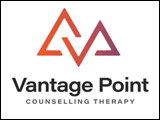The Bethesda Regional Health Centre (BRHC) has achieved Baby‐Friendly status by the Breastfeeding Committee of Canada (BCC) for its standards of best practice related to the Baby Friendly Initiative (BFI). This designation recognizes BRHC’s commitment to enable mothers to breastfeed their newborn babies. BRHC is the first hospital in Manitoba and the 28th in Canada to receive the BFI designation.
“Protecting, promoting and supporting breastfeeding can strengthen mother‐baby and family relationships for all babies, not only those who are breastfed,” said Health Minister Erin Selby. “I know the facility worked extremely well to achieve Baby Friendly as an important designation, and I offer my sincere congratulations to all the hard‐working staff. Their commitment to the mothers and babies they serve and care for has achieved a new level of excellence”.
Baby Friendly is about providing care that’s appropriate and tailored to the individual family. Not all practices work for every mom, baby and/or family. Baby Friendly is very family‐centred, helps to make decisions based on sound research and supports families to make the best possible decisions. The Baby‐Friendly program focuses on important practices related to bonding between mother and baby. It’s making sure that baby and mom are skin‐to‐skin as early as possible after birth and for as much time as possible, allowing for the transition of baby to breathe air, regulated body temperature as well as bonding.
“We are extremely proud to be Manitoba’s first hospital to be recognized for this initiative of excellence,” adds Kathy McPhail, CEO Southern Health‐Santé Sud. “Today we celebrate this achievement and express our appreciation to the many dedicated staff that have contributed to this initiative.”
Baby Friendly Accreditation is part of Manitoba’s Breastfeeding Strategy. Goals have been set to achieve Baby Friendly accreditation in 75% of all Manitoba birthing hospitals/centres that have more than 100 births/year and 75% of all community public health offices by 2018.



